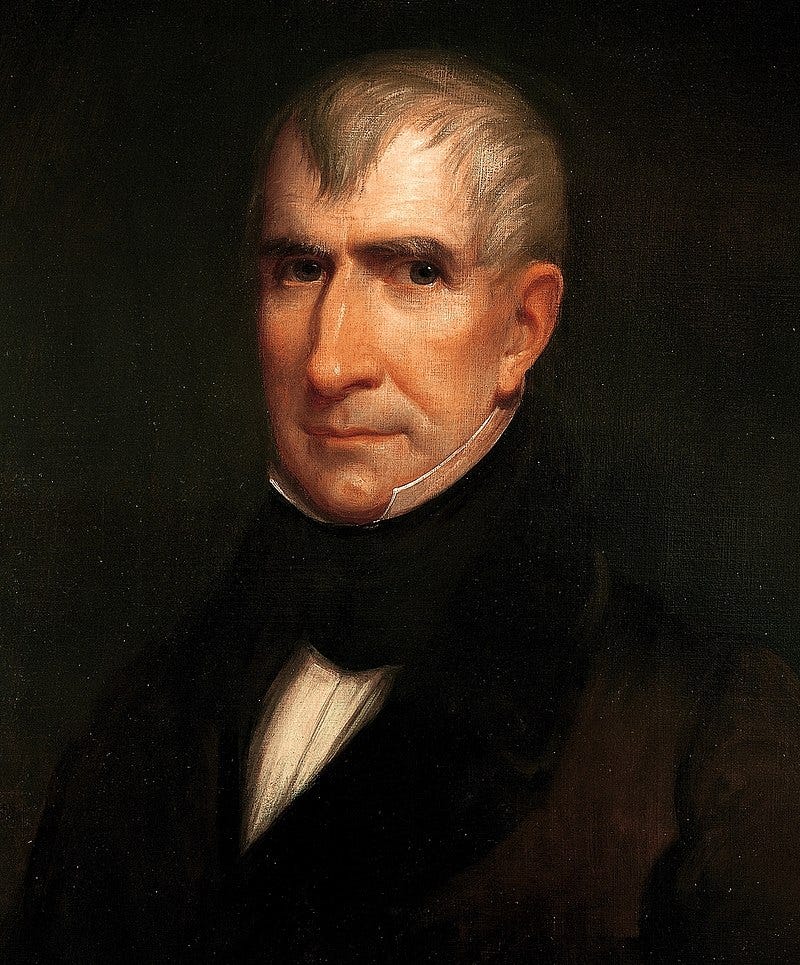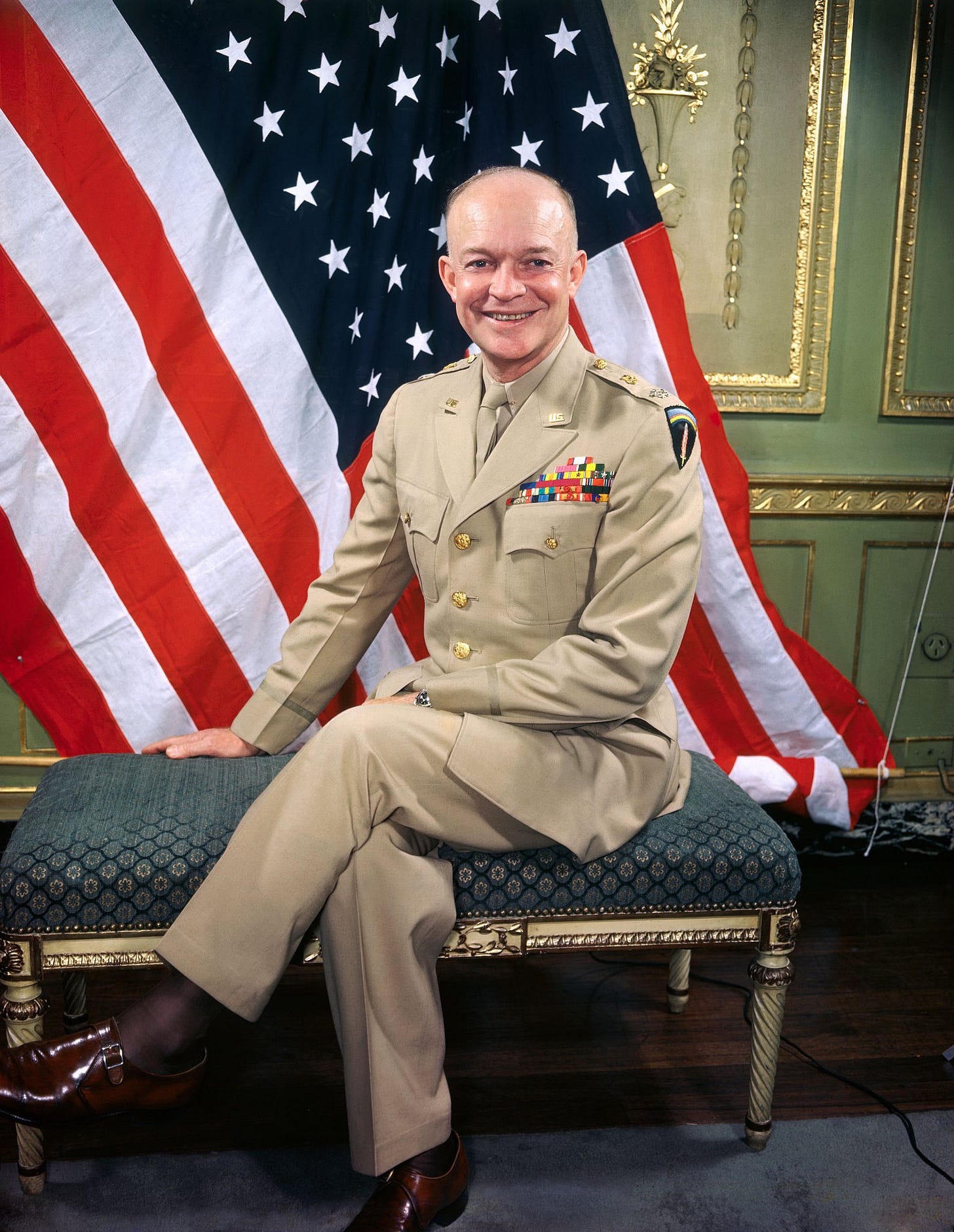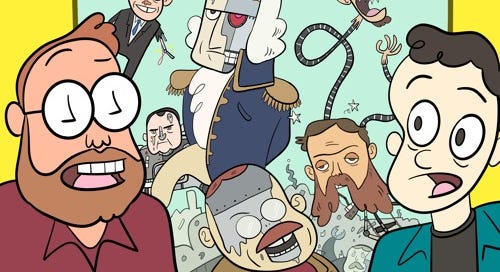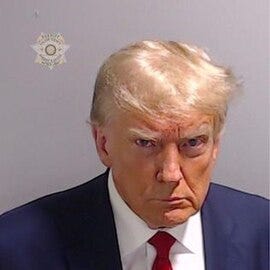Hell of a job, being the President of the United States. You carry around a suitcase that can end all life on Earth. You have to live in a big white house. You have to be ready to greet any aliens that might visit the planet. Harrison Ford plays you in movies. It’s a big deal!
It’s 2024 now, which means it’s an election year, which means we’ve got 11 months ahead of hearing so much about the Presidency that it makes us sick. But in the insane 24-hour news cycle of polls, primaries and gaffes, you never really hear anyone discuss any dumb-sounding but fundamental questions. Like: what is the Presidency, really? What is it for? What should the President be, or do? And how much does it really matter?
Big questions, definitely. And luckily, we don’t need to pull our answers out of thin air. We’ve got a couple hundred years of historical precedent to analyze! All we need is a couple of nerds willing to research all of it, then package it into a digestible format for the time-poor citizens of the world. Maybe an audio thing?
So that’s where Hell of Presidents comes in. It’s a spinoff from the Chapo Trap House podcast, which if you’ve been under a rock is a zeitgeist-y chat show about the perpetual political dysfunction of the United States. Hell of Presidents takes its parent show’s irreverent tone and adds some unabashed nerdiness, to produce a limited series covering the history of the Presidency, from Washington to Biden. (It was actually released way back in 2021 behind a Stitcher Premium paywall — but since the demise of Stitcher Premium, is now available behind the much more affordable Chapo Trap House Patreon paywall).
So, first things first — yes, it’s a history podcast. But that’s a pretty big umbrella to sit under, and I’m pretty particular about what I want from a history podcast. There are shows out there, popular and successful shows, that to me just sound like the hosts reading out Wikipedia pages in between forced banter. Then, on the other hand, you have someone like Dan Carlin, probably the biggest name in history audio. You could never accuse him of not knowing his stuff, and I really enjoy his work. But the format of his Hardcore History show has evolved into annual episodes that stretch out to five hours of pleasant rambling with very little clear signposting. It’s easy enough to listen to but hard to remember or learn from – truly for the hardcores.
For me, Hell of Presidents hits the sweet spot. It’s ambitious in scope, but accessible in tone; it’s broad strokes, and key details; it’s funny, and also tragic. Most importantly, it does something that I think great history storytelling does best – which is teach us about ourselves. You can really learn something useful here! When a bygone era is put in a context that draws out the contrasts and similarities with today, when you can empathise with someone from a hundred years ago, when you realise that what we thought was our chaotic present is actually extremely precedented by the past… frankly, that’s the good stuff. And that’s what I’ve got from Hell of Presidents.
You gotta give credit to the hosts and writers – Chris Wade and Matt Christman have a hell of a double act going. Chris is the anchor, delivering most of the exposition and controlling the flow of the show. He throws to Matt for colour and context, which he gives in entertain, discursive, off-the-cuff rants. This is where the show zooms out to give a sociopolitical analysis to the Presidents being discussed. It’s not easy to move seamlessly from talking to your co-host to addressing your audience, from delivering script to unplanned conversation. It’s especially not easy when the subject you’re covering is nothing less than the grand sweep of history. But Chris and Matt make it sound easy. There’s an infectious and evident warmth and camaraderie to their partnership, the kind you get from indulging in an esoteric interest together.
Plus, having Matt Christman on your podcast is a cheat code. He’s a generational speaker, and a truly brilliant thinker – five thousand years ago he would have been wearing a bear hide next to a fire while the tribe gathered to listen. Christman possesses an encyclopedic knowledge of politics and history, the perceptiveness to link the different threads together in insightful ways, and the understanding to bring it all together into a story that makes sense.
And what a story – a few hundred years, through the prism of one job (spoilers ahead for the entirety of US history). In the early days, none of the Founding Fathers had any idea of what that job would actually be. It’s almost quaint to hear their vision of a politically neutral, mostly ceremonial position – for decades, nobody even campaigned in Presidential elections, because it was viewed as unseemly. In these early episodes, Matt and Chris mostly have a hoot recounting the growing pains of American democracy, and profiling the eccentric frontiersmen who took the job of President when it was more of a hot potato than an honour. I really mean that – in the days before plumbing and hygiene, the relocation to the fetid swamps of Washington DC probably caused the premature death of several Presidents.

Over time, as divisions over slavery become more and more heated – and the show gives you a great sense of how insanely long that issue was allowed to fester – the role of President takes on an existential importance to the American experiment. A series of men try and fail to resolve the conflict and keep the Union together, before it all devolves into civil war. This historical moment is met by a real political miracle, in Abraham Lincoln’s ability to resolve the Civil War in something pretty close to a best case scenario. That achievement is immediately balanced out by tragedy – Lincoln’s successors’ inability (or unwillingness) to lead a meaningful reconstruction of the state. Matt Christman in particular lingers on this moment – what if John Wilkes Booth’s aim had been just slightly off…?
From this point in the mid-19th century, the show really cooks. You start to recognise our contemporary state in an embryonic form, along with some very contemporary problems – economic injustice, global conflict, racial inequality, cultural divisiveness. All of these are refracted through the office of President, which mostly fails to address them in any coherent way. Particularly in the postwar era, this position that’s supposed to guide the tides of history is instead riding its waves and trying to stay afloat. This is the era of the JFK assassination, Watergate, Iran/Contra, Monica Lewinsky, the 2000 election, 9/11, the Iraq War – top-shelf spectacle and scandal, not exactly a litany of achievements. In this era, “success” for a President is no longer about reshaping the country for the better, but about surviving the controversies, looking good on TV, sniffing the winds of national mood, and winning the next election (or at least exploiting electoral law). Hey, at least they have a nuclear bomb now!

So, a quick State of the Presidency – what exactly is this job all the candidates are vying for in 2024? On the one hand, as Chris and Matt take pains to point out, the last hundred or so years has seen power shift away from the President’s desk. Certain decisions are no longer up for democratic debate, instead they’re delegated to a broadly-defined “system” of political and economic institutions that aren’t accountable to the public. The military-industrial complex, a free market underwritten by government bailouts, a complex network of judges making binding rulings affecting millions – these aren’t just bipartisan policies, they’re not even up for discussion.
On the other hand, the Presidency has never been more prominent as a kind of psychic repository for the population. A figure like Trump or Biden is a lightning for the emotional energy of millions – just like your favourite TV character. And in the grand cultural spectacle, this particular character has never played a more important role.
When Hell of Presidents was first released in 2021 I was unemployed, waiting on a work visa and about to get married, so I had other things on my mind than signing up to Stitcher Premium. If I’d had any inkling of how squarely this show would hit my sweet spot, though, I would have coughed up the cash sooner. If you’ve been at all tickled by this essay, I think it’s worth a punt. Or, you could find a nefarious YouTube playlist somewhere. It’s evergreen, after all — Biden hasn’t done much since 2021 to warrant a new episode.
There is, though, a sad resonance in listening to Hell of Presidents now. Matt Christman recently suffered a serious medical emergency and has been recovering in hospital. I really mean what I wrote earlier about his singular talents, and it’s a serious loss to podcasting while he recovers.
Hearing him in full flight on Hell of Presidents is a reminder just how good he is – and just how good a history podcast can be when it hits that sweet spot.





